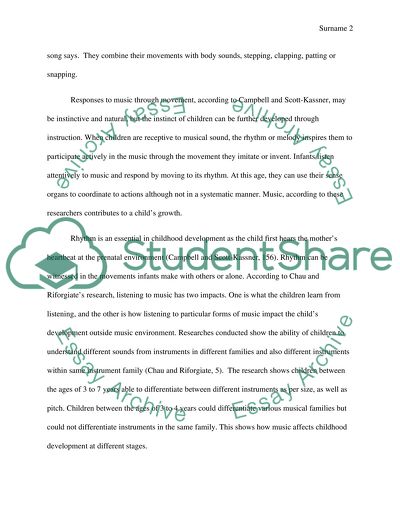Cite this document
(“Music and Childhood Development Literature review”, n.d.)
Retrieved from https://studentshare.org/music/1477177-music-and-childhood-development
Retrieved from https://studentshare.org/music/1477177-music-and-childhood-development
(Music and Childhood Development Literature Review)
https://studentshare.org/music/1477177-music-and-childhood-development.
https://studentshare.org/music/1477177-music-and-childhood-development.
“Music and Childhood Development Literature Review”, n.d. https://studentshare.org/music/1477177-music-and-childhood-development.


